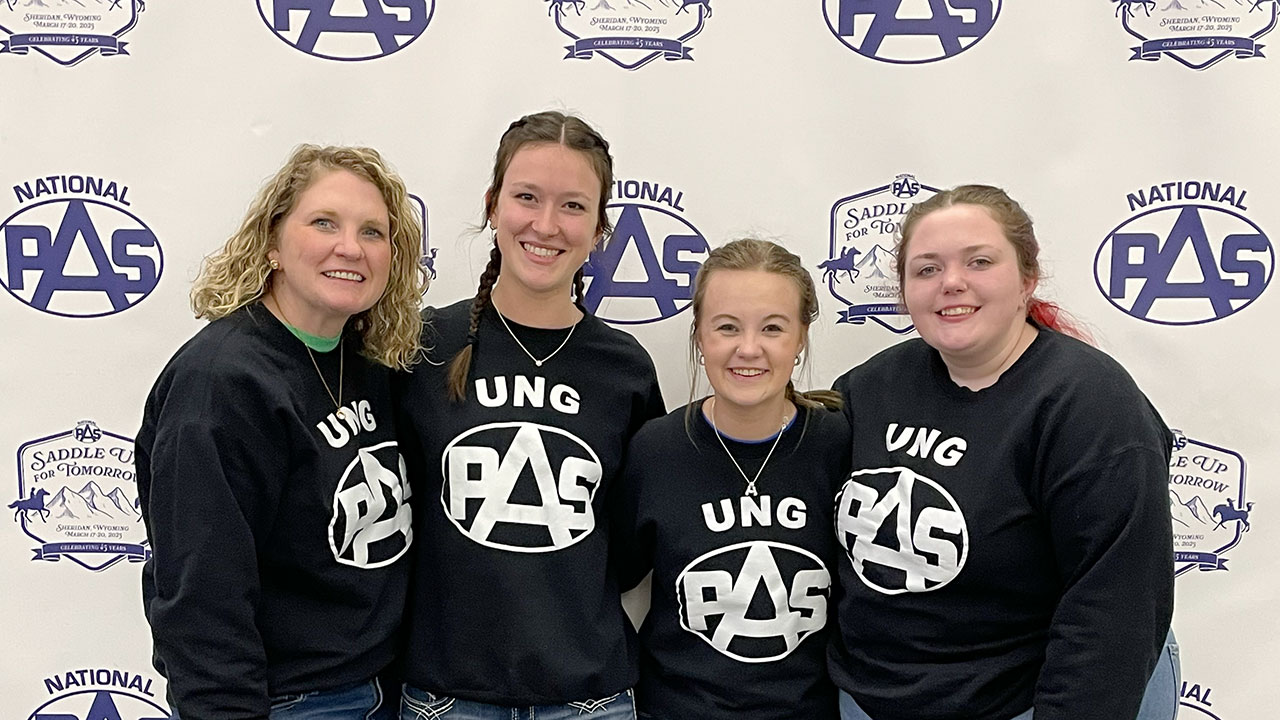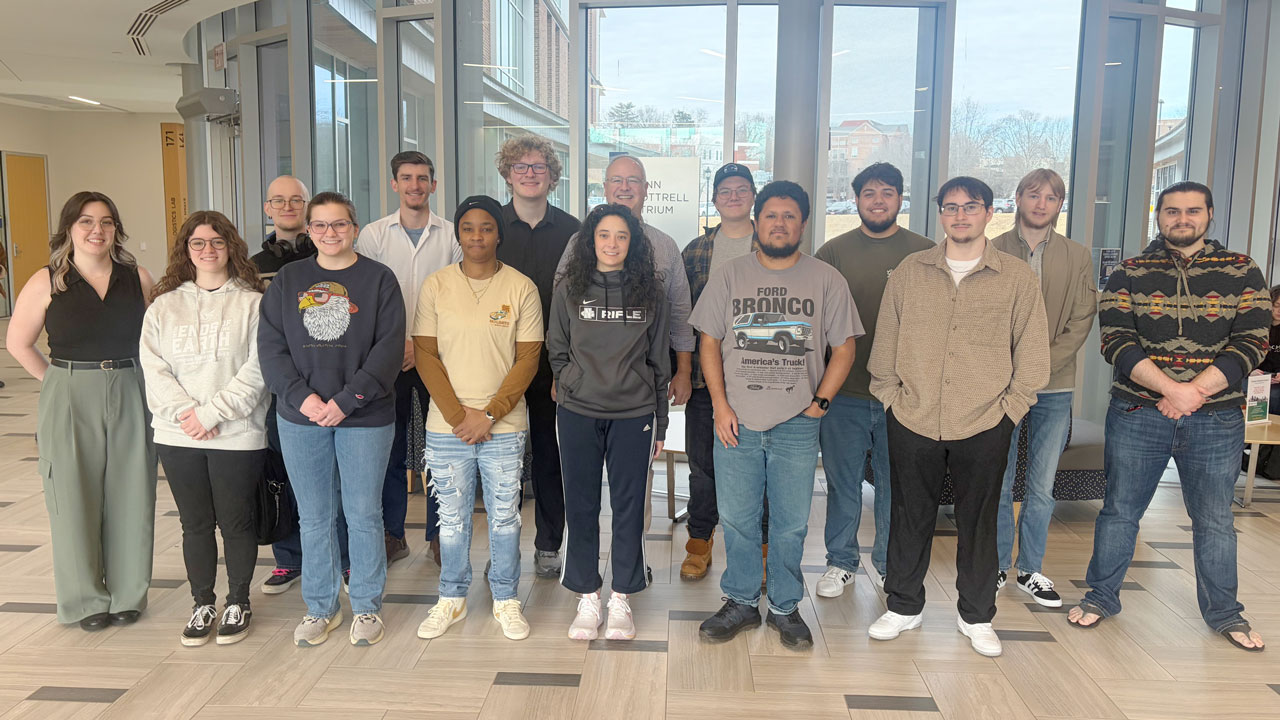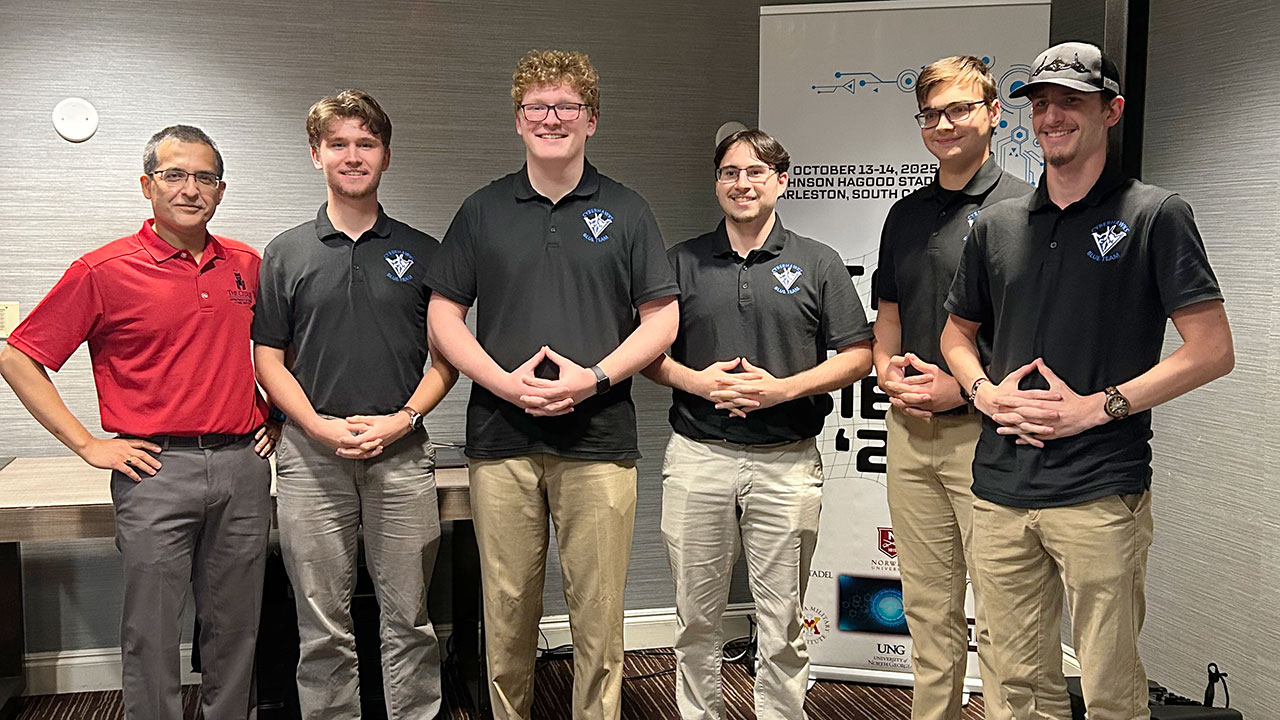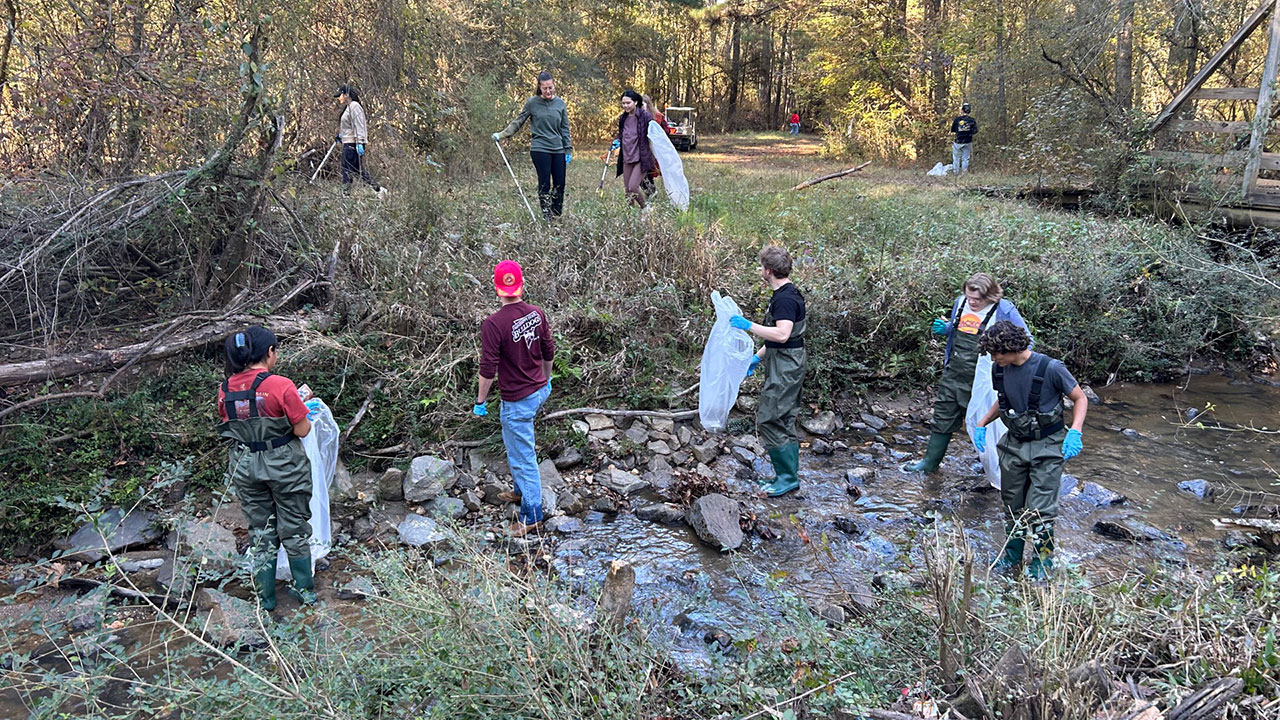Chemistry degree earns recertification

The University of North Georgia's (UNG) Bachelor of Science in chemistry has been recertified.
On March 7, the American Chemical Society (ACS) announced that the degree is reapproved until June 30, 2027. The program was reviewed by members of the ACS Committee on Professional Training during its executive session in January 2022.
"ACS approval is not trivial to get, nor is it easy to maintain," Dr. John Leyba, dean of UNG's College of Science and Mathematics, said. "The fact that the Department of Chemistry & Biochemistry was reapproved for another six years is a strong statement regarding the quality of the department's curriculum, faculty, staff, and students."
The fact that the Department of Chemistry & Biochemistry was reapproved for another six years is a strong statement regarding the quality of the department's curriculum, faculty, staff, and students.
Dr. John Leyba
dean, College of Science and Mathematics
The chemistry degree curriculum centers on five sub-disciplines: analytical chemistry, organic chemistry, physical chemistry, inorganic chemistry, and biochemistry.
The report stated that UNG is committed to providing students with relevant and up-to-date chemistry education and the program provides a variety of opportunities for students to enhance their education beyond the classroom.
"UNG has helped me grow as a chemist and as a person. The time that I have spent at UNG has been the most formative experience of my life," Calvin Perdigao, a senior from Lilburn, Georgia, pursuing a degree in chemistry, said. "The mentorship I have received through the UNG chemistry department has aided me throughout my bachelor's degree. In addition to the mentorship, the instruction has prepared me for further academic growth in future studies."
The number of students in the chemistry degree program saw a 9% increase from fall 2015 to fall 2017. The number of chemistry faculty members grew from 30 to 42 during the same timeframe, Dr. Lori Wilson, Department of Chemistry & Biochemistry head, said.
There have been several changes in the curriculum to help accommodate growth and ensure quality teaching, the largest of which was the addition of the bachelor of science degree programs in chemistry and biochemistry in fall 2018 on the Gainesville Campus.
"This accomplishment was only possible with significant curricular work," Wilson said. "Hiring in specialty areas was necessary to offer advanced courses in each chemistry sub-discipline. Additionally, the department has introduced new courses to the curriculum, including an introduction to polymers, a new teaching assistant course, and a new internship course to allow students more opportunities for experiential learning."
The review highlighted the many opportunities for students to participate in undergraduate research and present at local and national meetings along with the department's clearly defined and measurable student learning outcomes.
"This report represents six years of hard work and overcoming many challenges," Wilson said. "I am very proud of the effort, teamwork, and shared governance that brought us to this point."



